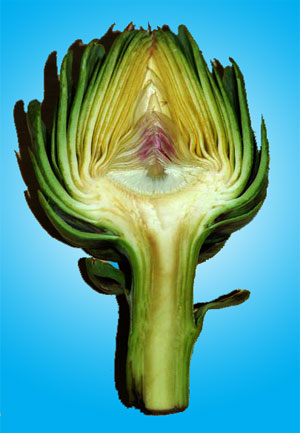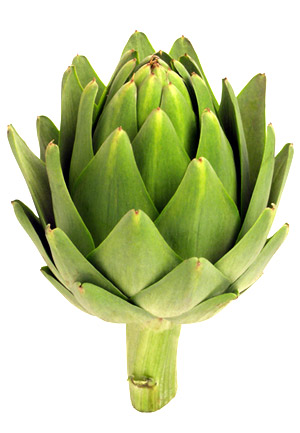|
|
This 1999-2001 project showed that value adding (eg. freezing artichoke hearts) is feasible for globe artichoke and, if accepted by processors, would significantly boost local consumption by retail markets and the food service sector. A cooked and frozen ready-to-heat/eat artichoke product would also be highly acceptable to local and overseas markets. Given the health benefits and nutritional value of artichokes, export opportunities would also be enhanced in the health conscious and expanding Asian markets.
Summary: The volume and variety of vegetables offered to Australian consumers have increased dramatically over the last 20 years. However, the production of globe artichoke has remained to a large extent, almost static at between 500 and 1500 tonnes for decades. This situation reflects limited consumption, which can be attributed to unfamiliarity and/or difficulty in the preparation and use of artichokes. This is despite the crop’s culinary versatility, excellent nutritional value and potential export prospects. As well as pursuing opportunities to increase local consumption, there is also a need to address export and import replacement opportunities. Australia is currently a net importer of processed artichoke products to meet consumers’ needs and to support a small processing industry that relies on canned artichokes for the production of anti-pasto products. Such products are marketed locally and/or exported at a much higher price than the imported primary material. Furthermore, there is a certain lack of vision in addressing the export opportunities and economic consequences of adopting new value adding and marketing strategies that are at the moment untapped by growers and processing firms. Our investigation showed that the artichoke industry in Australia is small by world standards and consists mainly of traditional family farm units clustered in Victoria where 90% of the annual crop (1300 tonnes) is produced. Production varies from year to year depending on the number of growers entering or exiting the industry. The bulk of the production is destined for the local fresh market with sporadic exports to hospitality trades in the Asia/Pacific region. An estimated 700 tonnes of processed artichoke products are imported annually to satisfy mainly the need of a local processing industry. The reliance on imported material is due to a shortage of local supply and the cheaper prices of overseas products. However, local processors have expressed interest in buying locally, provided they can be guaranteed a continuation of supply at prices comparable to the imported material. Besides the possibility of achieving import replacement, our investigation also showed that some value adding concepts such as plain frozen artichoke hearts (ready to cook) as well as cooked and frozen versions (ready to heat and eat) are technically feasible, convenient for consumption and accepted by consumers. Such concepts, if adopted, would considerably improve the local marketability and increase the export potential of globe artichokes. Further work is required to bring the value adding concepts reported in this project to realisation and commercial adoption by the processing industry. Moreover, in order to help achieve this aim, the artichoke industry will need to re-assess its existing local fresh market orientation and re-adjust itself to meet the expected increase in requirements of a local processing industry. Paramount in this regard will be issues such as introduction of varieties suitable for processing, mechanisation, seasonality and economies of production among other issues. Despite its small size by world standards, the Australian artichoke industry has the necessary expertise and capacity to expand if these and new market opportunities are exploited to their full potential.
Acknowledgements: During the course of this study we have received valuable support and advice from many people either directly related to the artichoke industry or other related fields such as, the food service industry, processors, importers and exporters, all of whom contributed generously in time and advice and helped us focus our work. The assistance and complete co-operation and enthusiasm of all growers of globe artichoke who were interviewed in the Werribee and Keilor districts, particularly Tony and Joe Farranda, Robert Nave and Anthony Senserrick. Thanks also to Alfred Lazer, Jeff Santa-Lucia, Darren Webb (Marketing Manager, Solutia Australia Pty Ltd). Thanks also to our colleagues at DNRE for their assistance: Ross Clarke, Fiona Thomson and Stephen Moore. From the Food Services Operators Industry in Melbourne, Victoria the following are also
During the principal investigators visit to overseas research centres, many people involved in Special thanks to:
This project was commissioned by Horticulture Australia Limited�and funded by the Vegetable R&D levy and the Victorian State Government.. The Australian Government provides matched funding for all HAL’s R&D activities. |
||||||
|


